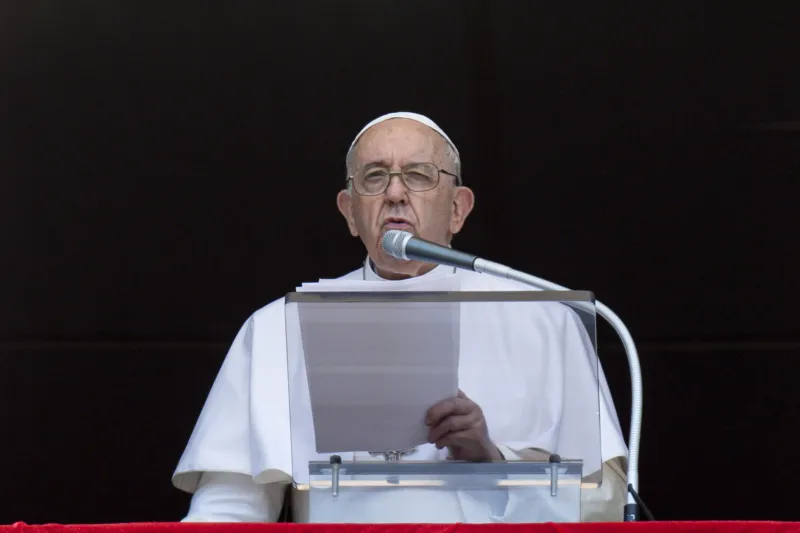
Vatican City, Dec 11, 2022 / 08:35 am (CNA).
Pope Francis said Sunday he is concerned about recent deadly clashes in the northern part of South Sudan.
“I follow with sorrow and concern the news from South Sudan about the violent clashes of the past few days,” he said Dec. 11 at the end his Sunday Angelus message.
Pope Francis is scheduled to travel to South Sudan’s capital city, Juba, in just under eight weeks.
“Let us pray to the Lord for peace and national reconciliation, so that the attacks may cease and that civilians may always be respected,” Francis said Sunday, after violence broke out in South Sudan’s Upper Nile state, in the north-eastern part of the country, last week.
United Nations agencies said over 9,000 people were displaced in the clashes, and an unknown number of people were killed.
Pope Francis’ Feb. 3-5 visit to South Sudan, which he will undertake together with the archbishop of Canterbury, Justin Welby, and the moderator of the Church of Scotland, Iain Greenshields, is to be a “pilgrimage of peace.”
The pope’s journey to South Sudan will follow a three-day visit to the city of Kinshasa, in the Democratic Republic of Congo.
The motto of the South Sudan trip comes from John 17: “I pray that all may be one.”
The dates of the pope’s travels to the two African countries was announced earlier this month; it was originally to take place in July but was postponed by the Vatican due to problems with Pope Francis’ knee.
The latest outbreak of violence in South Sudan is a continuation of fighting that began in August in a village in Upper Nile, according to Reuters.
In parts of the country, clashes over access to resources such as water and grazing land are common.
A missionary and bishop in South Sudan told journalists in April that the country is still working to implement peace, and that on his trip, Pope Francis will not find “peace realized, but peace persisting.”
The logistics of the pope’s trip will be difficult, but the national security authorities are prepared to handle it, Bishop Christian Carlassare of Rumbek said via video call April 21. “There are no major risks” to Pope Francis’ safety, he added.
He said the country is also facing economic problems, conflicts connected to the control of resources such as oil, and farming issues caused by hard rains and flooding.
If you value the news and views Catholic World Report provides, please consider donating to support our efforts. Your contribution will help us continue to make CWR available to all readers worldwide for free, without a subscription. Thank you for your generosity!
Click here for more information on donating to CWR. Click here to sign up for our newsletter.




Yes, well, OK fine. It’s nice that the pope is concerned.
There are some that are not peaceful. Though they wish to be treated with respect and understanding, still, at their core, conquest of others is their aim. Only Jesus Christ can influence and change a man from combative to having peace with God and ones fellow man.
As these emissaries of peace go forward, may God grant them insight and discernment to bless those whom they meet.
Hebrews 13:6 So we can confidently say, “The Lord is my helper; I will not fear; what can man do to me?”
Psalm 118:6-9 The Lord is on my side; I will not fear. What can man do to me? The Lord is on my side as my helper; I shall look in triumph on those who hate me. It is better to take refuge in the Lord than to trust in man. It is better to take refuge in the Lord than to trust in princes.
Isaiah 41:10 fear not, for I am with you; be not dismayed, for I am your God; I will strengthen you, I will help you, I will uphold you with my righteous right hand
Romans 8:31 What then shall we say to these things? If God is for us, who can be against us?
Matthew 5:9 “Blessed are the peacemakers, for they shall be called sons of God.
Romans 12:18 If possible, so far as it depends on you, live peaceably with all.
Matthew 7:12 “So whatever you wish that others would do to you, do also to them, for this is the Law and the Prophets.